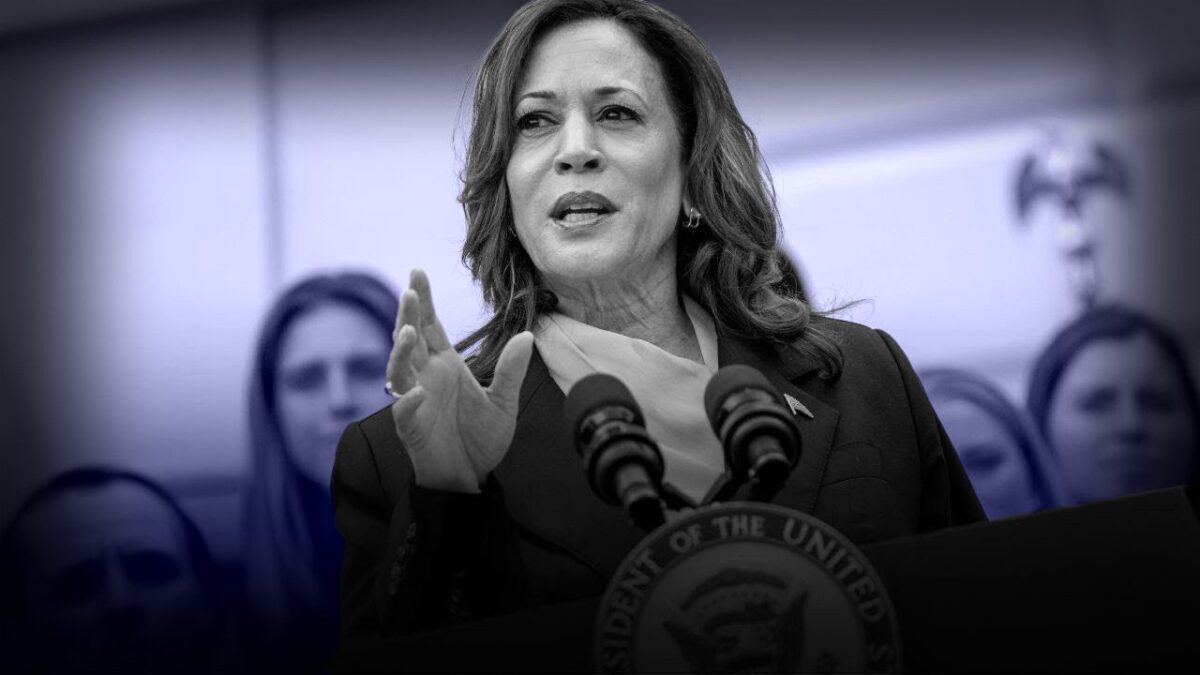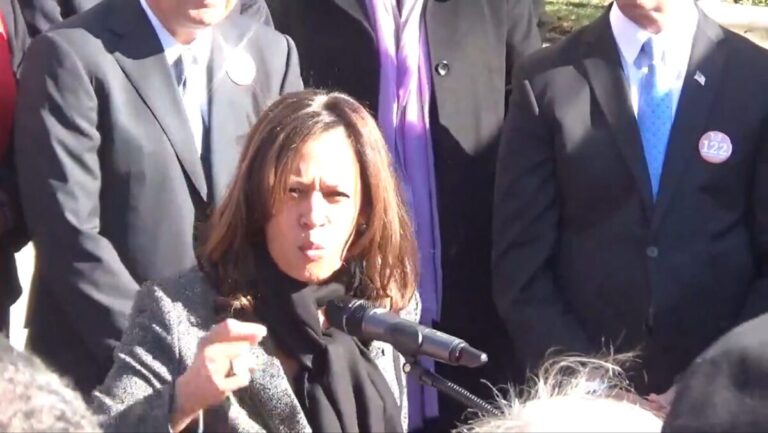As the 2024 presidential election season heats up, a concerning trend has emerged around the online presence and digital strategy of Vice President Kamala Harris’s potential campaign. According to reports, the Harris team is allegedly engaging in a coordinated effort to artificially inflate her digital appeal and cultivate an image of widespread youth support through questionable tactics.
Astroturfing Allegations on Social Media
Several prominent Gen Z content creators have come forward, alleging that the Harris campaign is actively “astroturfing” – or manufacturing the appearance of grassroots support – on platforms like TikTok, Instagram, and Twitter. These influencers claim to have received direct outreach from the campaign, offering financial incentives to create and share pro-Harris content, including memes and videos portraying the VP as a “brat” or “cool and approachable” figure.
The Paid Promotion Controversy
One such influencer, online comedian Steve McGrew, shared a message he received from a company called “LaunchViral,” which claimed to be working with the Harris 2024 campaign. The message offered payouts to content creators who would “encourage your fans to share, like, and follow Kamala, post one or more memes, [and] post your content on TikTok, Instagram, or both.” This type of coordinated, paid promotion has been widely criticized as an inauthentic and manipulative tactic to artificially boost the candidate’s online presence.
Rebranding Efforts and the Youth Vote
The Harris campaign’s apparent efforts to rebrand the VP as a “cool and approachable” figure among younger voters have also raised eyebrows. Commentators like Chrissy Clark, a Gen-Z conservative, have suggested that this strategy is part of a broader attempt to harness the power of the youth vote by presenting Harris in a more relatable and trendy light, while simultaneously dismissing any criticism as racist or anti-feminist.
The Disconnect with Gen Z Voters
However, some social media influencers have expressed skepticism about the effectiveness of these tactics. Savannah Fuhr, another influential figure, noted that Harris has struggled to connect with Gen Z voters, who are looking for a leader who can deliver tangible results beyond “vacuous promises” about student debt relief. The perception that the VP has been “sitting on the cultural sideline” for the past three years has only exacerbated this disconnect.
The Mainstream Media’s Complicity
The mainstream media’s coverage of the Harris campaign’s digital strategy has also come under scrutiny. Commentators like CNN’s Van Jones have been criticized for their seemingly uncritical embrace of the “from cringe to cool” narrative, which some view as a cringeworthy attempt to validate the campaign’s efforts to rebrand the VP.
The Potential Consequences of Astroturfing
The allegations of astroturfing and paid promotion raise serious concerns about the integrity of the electoral process. If true, these tactics could undermine the authenticity of online discourse, skew public perception, and ultimately lead to a distortion of the true will of the electorate, especially among younger voters.
The Importance of Transparency and Accountability
As the 2024 election cycle progresses, it is crucial that the media, political watchdog groups, and the public at large scrutinize these kinds of digital campaign strategies with a critical eye. Transparency and accountability must be prioritized to ensure that voters can make informed decisions based on genuine, grassroots support rather than manufactured online narratives.
The Broader Implications for Democracy
The allegations surrounding the Harris campaign’s digital tactics are not isolated incidents. They are part of a broader trend of political actors leveraging social media and digital platforms to sway public opinion and influence electoral outcomes. This raises fundamental questions about the health and resilience of our democratic institutions in the face of such manipulative tactics.
The Need for Ethical Digital Campaigning
Moving forward, it is incumbent upon political campaigns, social media platforms, and policymakers to establish clear guidelines and safeguards to ensure that digital campaign strategies adhere to the principles of transparency, authenticity, and fair play. Anything less than this risks further undermining public trust in the democratic process.




Leave a Comment